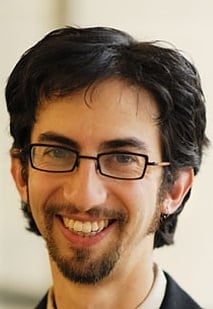A student approaches me, red in the face. “Please explain this,” he says. I look at his report card. I’ve given him a low grade for class participation. Over the course of the semester, he has repeatedly scoffed at the comments of classmates. This has brought tension and distrust to the class. When I remind him of this, his face falls. “You’re right,” he says. “What if I apologize and never do it again.”
“Sorry,” I say. “This mistake has no undo.”
We often think that we can cut corners, avoid the costs of our actions, ignore cause and effect and come out ahead. But we are mistaken, and Parshat Acharei Mot comes to remind us of the way things really work.
The parshah begins by describing the priestly Yom Kippur atonement service. We learn here that God has incorporated atonement—the mercy that leads to Divine forgiveness—into the fabric of creation. But the parshah then takes a dramatic turn as it delineates a series of laws and specifies the consequences of failing to follow them: the aberrant individual is cut off from his people[1] and the guilty nation is spewed out from the land.[2]
The parshah makes a distinction between the guilt for humanity’s mistakes, which may be absolved, and the consequences of those mistakes, for which there is no undo. This distinction is crucial.
Steven Covey, author of Seven Habits of Highly Effective People, writes that natural laws determine processes and outcomes in the natural world. For example, farm workers understand that “ripping up the soil, throwing in the seeds, watering and cultivating overnight” will not provide them with “a bountiful harvest overnight.”[3] With acts of labor in the natural world, we know that the process must be done in the correct order, at the right time. Yet in social systems, we somehow think that fast fixes and clever problem-solving can undo the effects of neglect, disrespect and betrayal.
A deep principle operates here, deeper than sin and punishment, one that we must learn and re-learn, year after year. Namely, even as we embrace the tremendous mercy of atonement, we must simultaneously bear in mind the opposite principle: the Law of the Farm. No matter our nation or identity, no matter our class or race, no last-minute desperate action, no pleading to the powers above can contain the effects of our actions.
Violations such as those enumerated to Moses in this parshah are irreparable assaults on human dignity and cannot be reversed. The Israelites are prohibited from sexual relations between close family members, from lying with each others’ spouses, from offering their children to Molech[4] and from lying with animals.[5] Each is a violation of familial trust, neighborly trust and fidelity to God. To break these laws is to deny what we learned in Parshat Bereshit—that each human being is created with the divine spark, B’tzelem Elohim, in God’s image.[6]
No community that tosses aside human dignity can thrive or even survive. God does not need to expel people from the land—the land itself will expel them. In a certain sense, they expel themselves. Regardless of Divine compassion or even atonement, the consequences of their actions will wreak destruction. In fact, the undeniable nature of these laws is underscored by God, who tells Moses that it was not their religion nor their national identity that brought the previous inhabitants of Israel to their doom. It was their violation of these very laws.
For us today, the Law of the Farm still applies to our relationships, to our communities and to the ground we live on. We can no more saturate the soil with poison, fill the atmosphere with carbon dioxide, and still beg for miraculous redemption than the aberrant Israelites of Parshat Acharei Mot could lie with each others’ spouses and not expect their world to crumble. There is no quick fix for global warming, no atonement for ignoring the spread of AIDS in Africa. There is no magical restoration of the effects of poverty, of persecution. The Law of the Farm, we learn from this parshah, is God’s law. It supersedes the ways of Egypt and the laws of Canaan. It was woven by God into the very foundation of existence.
The Torah thus teaches that interdependence is essential to our survival. This is what enables us to envision all of humanity as a single community and to build our world in harmony with the earth. When we live the Law of the Farm, we unite the earth with God’s plan. We become partners in a collective, redemptive process.
It begins with committing ourselves to the preservation of human dignity. Only then do we earn our sacred nationhood. Only then do we earn our place on earth.
[1] Vayikra 18:29
[2] Vayikra 18:27
[3] Stephen Covey, First Things First. Free Press: New York, 1994, pp. 54-55
[4] In the ancient Near East, worshippers of the Canaanite god Molech would offer their children as part of a fire ritual. This pagan practice is strictly forbidden in Jewish law.
[5] I have omitted from discussion the prohibitions having to do with contact during the menstrual cycle and with homosexual acts. Both topics, I feel, need to be treated with specific sensitivity and are thus beyond the scope of this article.
[6] Bereshit 1:26

